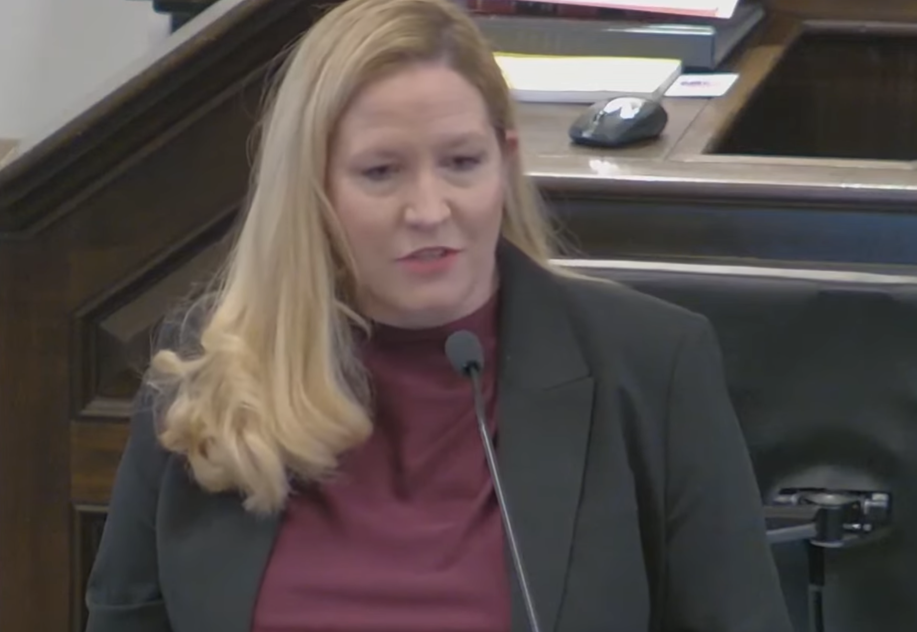By GARRY RAYNO, InDepthNH.org
CONCORD — Lawmakers in the Live Free or Die state decided the motto does not apply to young transgender individuals who will not be able to have elective gender transition surgery until they are 18 years old or older.
Meeting Thursday, the House in a series of close votes, killed bills that would have aided transgender individuals and voted to join about 20 other states in banning transgender surgery for individuals under 18 years old.
The House voted to approve House Bill 619, which banned the procedure on a 188-175 vote after nearly an hour of debate.
The House did adopt an amendment that narrowed the bill but still prohibited medical procedures on those under 18 years old.
Supporters of the prohibition said there is not enough evidence that performing the irreversible medical procedures on younger individuals is safe or has a good outcome.
Rep. Erica Layon, R-Derry, said the Health and Human Services and Elderly Affairs Committee was told by medical experts the procedures are safe and effective but did not produce any evidence as no study has been done on those under 18 years old.
She said 16 months ago the medical standards were changed to allow the surgery on those younger than 18 years old, but prior to that it was not an issue.
Layon said rather than trickling down, the new standards have been implemented very quickly in an effort to do anything to help these kids.
“But we need to wait, we need to pause,” she said. “Is it OK to tell parents the procedure is safe and effective if there is no data?”
But others said the procedure is rarely performed on anyone younger than 20 years old and who has gone through extensive therapy, hormone therapy, and lived as their desired sexual orientation for a year.
Rep. Gerri Cannon, D-Somersworth, noted she underwent the procedure as an older adult and was interviewed by three physicians who wanted her to be sure that was what she wanted to do.
There are many excellent health care providers in New Hampshire who are using the best available tools, she said, noting the procedures are changing all the time to be more effective and efficient.
“This is not about surgery, but about why we are considering putting medical processes into New Hampshire law that is constantly changing,” Cannon said, “and (medical providers) are constantly learning new ways to care for patients and new techniques.”
She said the bill is unlike anything the legislature has done to date, as it will require constant monitoring and changes in law as changes in the field occur.
“It is not right for New Hampshire, it is not right for the transgender community,” Cannon said. “I hope young people do not take this message badly, I am concerned about the health of many young transgender people.”
The bill now goes to the Senate where it is expected to be approved as well.
The House also approved House Bill 396, which allows the state to recognize and separate people based on their biological sex in three areas: public toilet facilities, sports, and correctional institutions,
Rep. Bob Lynn, R-Pelham, said the separation is allowed in certain areas under federal law such as college athletics where the separate but equal doctrine applies and with privacy rights like in a public restroom.
But others argued the bill was stepping back from civil rights the state sought to enshrine just five years ago by a Republican controlled legislature and governor.
Rep. Shelley Devine, D-Nashua, said the bill would undo the good work the previous legislature did to protect against gender discrimination.
“This is a step back,” she said, “and you risk fostering discrimination.”
Others argued biological sex was not defined and would open the door to people using their own definitions to discriminate based on gender as has happened in Texas.
But Lynn said a court would laugh you out of court if you made that argument, as courts and people makes these decisions all the time.
“Of course you can make these decisions that make sense for privacy protection and safety reasons,” Lynn said.
The bill was approved on a 192-184 vote.
On a 191-185 vote, the House killed House Bill 264, which would have made it easier for transgender individuals to change their gender on their birth certificates.
The process now involves a court order, while the bill would have allowed the change with the consent of a medical provider.
The original birth certificate would be retained as would other public records with a different sexual orientation for the individual.
The House killed House Bill 368 which would have provided protection for parents of children under the age of 18 years old if they have gender changing surgery in New Hampshire and would have protected the health care providers as well.
Some states like Texas seek medical records for transgender procedures done on minors in other states in order to file child abuse charges against the parents or providers.
Opponents of the bill said it would turn New Hampshire into a sanctuary state for the procedure on minors.
But proponents said it protects privacy and parental rights.
The bill was killed on a 188-186 vote.
Garry Rayno may be contacted at garry.rayno@yahoo.com.






